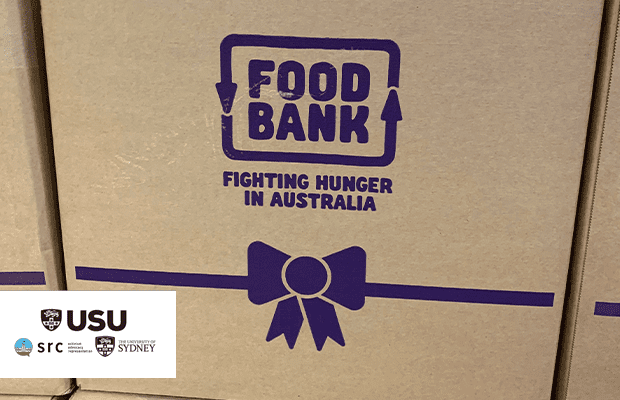The USU and SRC have identified miscommunication and administrative difficulties as key reasons for their failure to continue the FoodHub initiative.
Established in early 2021 in response to the acute need for affordable food in the international student community, FoodHub is a volunteer-run program led by the USU, the SRC and Study NSW that distributes food hampers containing essential, long-life items to assist struggling international students.
In their Office Bearer’s Report, SRC Vice President Mikaela Pappou and Emily Storey claimed they were notified by the USU that the organisation failed to submit a SSAF (Student Services and Amenities Fee) application to support the program.
“We regret to inform you that the USU [has] claimed that they simply did not realise that they had to put in a SSAF application in order to fund FoodHub for 2022,” Pappou and Storey said.
The pair alleged significant delays in communications from the USU, stating that weeks passed before the organisation returned an adequate response to the SRC.
“It did in fact take multiple weeks for the USU to inform us of what can only be an incredibly large lapse in oversight over FoodHub.”
However, USU President Prudence Wilkins-Wheat rejected the Vice Presidents’ characterisation, saying that responsibility for the program rests on the SRC.
“I have not been contacted about the FoodHub since I’ve been President (except by the current VPs asking for an update before Welcome Fest this year)” said Wilkins-Wheat.
“I assumed the Foodhub was still running, and USU staff assumed the SRC knew the project/funding was ending. The SRC could have written a SSAF application or contacted us about the future of Foodhub, [but] neither happened.”
Wilkins-Wheat expressed that the USU is “sad” that FoodHub did not happen; however, the responsibility to “champion” the program lies with the SRC.
“Had the SRC contacted us during SSAF season or when we were setting our budget, we would have happily collaborated,” she said.
Subsequently, the Vice Presidents confirmed to Honi that the first time the SRC contacted the USU regarding FoodHub was 7 February — one week before Welcome Week. SSAF applications for Semester 1, 2022 were due in late December 2021. Pappou said that the SRC wasn’t aware “a SSAF application needed to be made on behalf of the USU”, indicating that both organisations assumed that the other was primarily responsible for taking initiative on the program.
Although SRC President Lauren Lancaster found it “concerning that the USU [wasn’t] aware [that] they needed to submit a SSAF application”, she attributed the temporary hiatus of FoodHub to the fact that SSAF fees are distributed by the University.
Despite these disruptions, Lancaster, Pappou and Storey note that the SRC remains committed to working with the USU to explore ways to secure a venue and funding for FoodHub so that it may return to service in the future.
“However, I don’t think this points to problems with the USU, but instead with the administrative obstacle course that student organisations are presented with through the SSAF distribution process,” Lancaster said. “If student money was going straight to student organisations, this sort of incident could be entirely avoided.”





